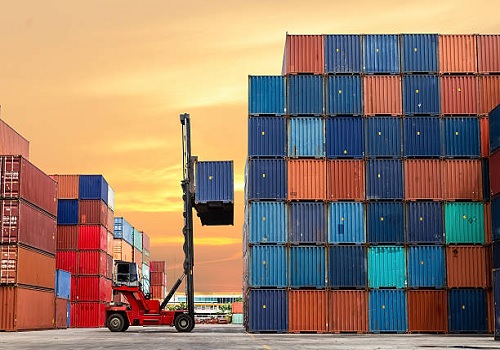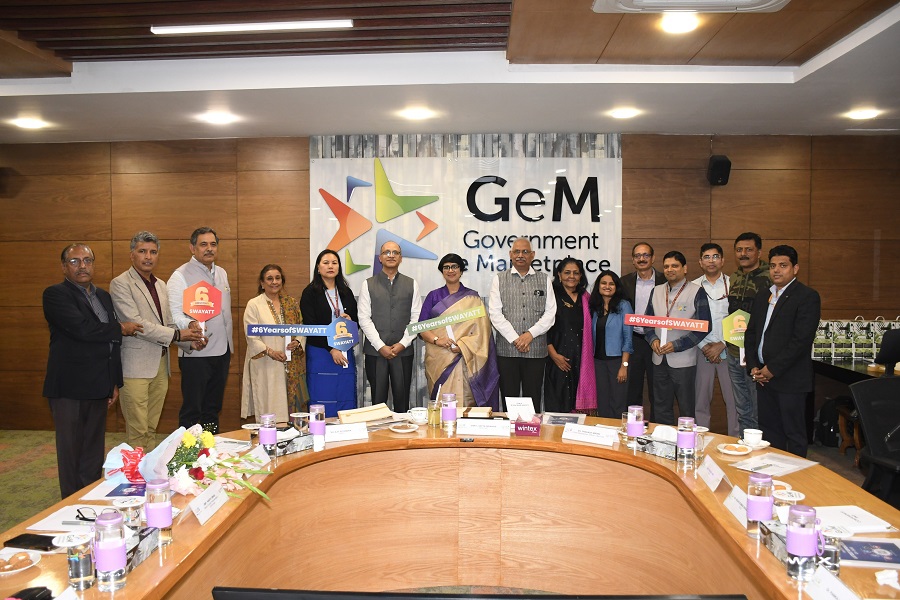Round tripping of industrial inputs by large players unfavourable to local value chains

The Indian Industrial Value Chain Council (IIVCC), a group representing organisations involved in industrial production and consumption supply chain activities across India, has carried out research on some of the anomalies that exist in Indias aluminium industrial ecosystem, which are resulting in loss of forex for the country, an increased cost burden to Indian customers, and a denial of timely raw material inputs to the domestic aluminium manufacturing industry.
According to Ashok Kumar Agrawal, National Convener, Indian Industrial Value Chain Council (IIVCC), "As the country is rapidly rising from the ravages of the pandemic, there is a need to nurture and protect local manufacturing value chains, so that all participants, from large to small, medium and micro enterprises can benefit. Our research has revealed that there are policies and practices that send value outside India at the cost of domestic industry and consumers which must be reversed."
"NALCO was provided bauxite mines free of cost for the express purpose of promoting the growth and development of the domestic aluminium industry in the country. Hence, excess aluminia which is not being consumed by NALCO should be offered to other domestic producers instead of exporting it," he added.
Aluminium is one of the most critical metals in existence today, second only to steel in the overall level of consumption. Its versatile properties have been harnessed for a range of sectors including construction, electricals and defence, and its availability will be central to the success in adopting emerging technologies such as electric vehicles and renewable energy. But India's future in terms of access to sufficient supplies of aluminium appear set to be disrupted by certain anomalies.
NALCO, a government of India enterprise, has an aluminium smelting capacity of 0.48 mtpa and an alumina production capacity of 2.3 mtpa, utilising India's rich bauxite resources to produce the material and touching production above 2 million MT in both FY20 and FY21.
After utilising alumina for its own aluminium production, the company has surplus availability of alumina to the tune of 1.3 mtpa.
However, NALCO's alumina exports presently account for a gigantic 60 per cent of its production. It utilises 1 mpta of alumina generated for captive consumption and the balance 1.3 mtpa is sold via tenders only to overseas buyers. That the company appears to prefer exporting this large volume instead of helping promote value addition within the domestic aluminium sector is baffling, especially in the light of the shortage of alumina availability within the domestic aluminium sector.
This worrying situation is against the spirit of the 'Aatmanirbhar Bharat' initiative. Alumina is a valuable intermediary product that is essential for producing sufficient quantities of aluminium. By exporting alumina, NALCO is creating an uneven playing field for its peer aluminium companies. Notably, NALCO has been provided bauxite mines free of cost solely for the growth and development of the aluminium industry in the country. But instead, the company is exporting an intermediary raw material to foreign beneficiaries, including to US-sanctioned countries and even to nations with whom India is experiencing geopolitical tensions.
It is believed that the primary rationale for the PSU to follow this policy is that it needs to secure export benefits through supplying to overseas customers. However, there are several domestic aluminium smelters operate in established SEZs in the country and by supplying to these producers the PSU will get all the export benefits like duty drawback, EPCG benefits and others. SEZ-based plants have expressed their interest in participating in the NALCO tenders and paying the port prices for directly securing supplies from NALCO, which could net the PSU an additional 200 crore.
Due to NALCO's policy to not supply locally to domestic aluminium players, there now exists a situation of simultaneous export and import of alumina within India, which has caused a loss to the exchequer of nearly $5 billion (Rs 40,000 crore) in just the last seven years.
This same alumina, which is being exported, is subsequently dumped back into the market in the form of aluminium. Currently, India imports nearly 60 per cent of our aluminium requirement annually, despite possessing the domestic production capacity to fully meet this demand.
The situation has given rise to a number of challenges. If the alumina being exported were instead processed within the country, a value addition of up to three times more could be achieved. The unnecessary roundabout in exporting and reimporting alumina is also congesting the logistics network domestically, in addition to creating additional pressures on the environment through increased carbon emissions.
Ultimately, foreign companies stand to gain from the increased access to alumina and consequent higher exports to India. It is astonishing to note that the nation in facts loses more forex than it gains through this approach, as it spends more on importing aluminium to account for the shortfall in alumina.
Urgent steps need to be undertaken to rectify this situation in the greater interest of the nation. Domestic utilisation of NALCO's excess alumina, will promote value addition within the country, leading to more jobs and higher contributions to the exchequer.
The need of the hour is to enhance cross-enterprise collaboration for the greater good. Major producers need to work together to harness natural resources and dedicate them to the development of the nation. This would help greatly boost the national GDP and place India prominently on the global manufacturing map.














